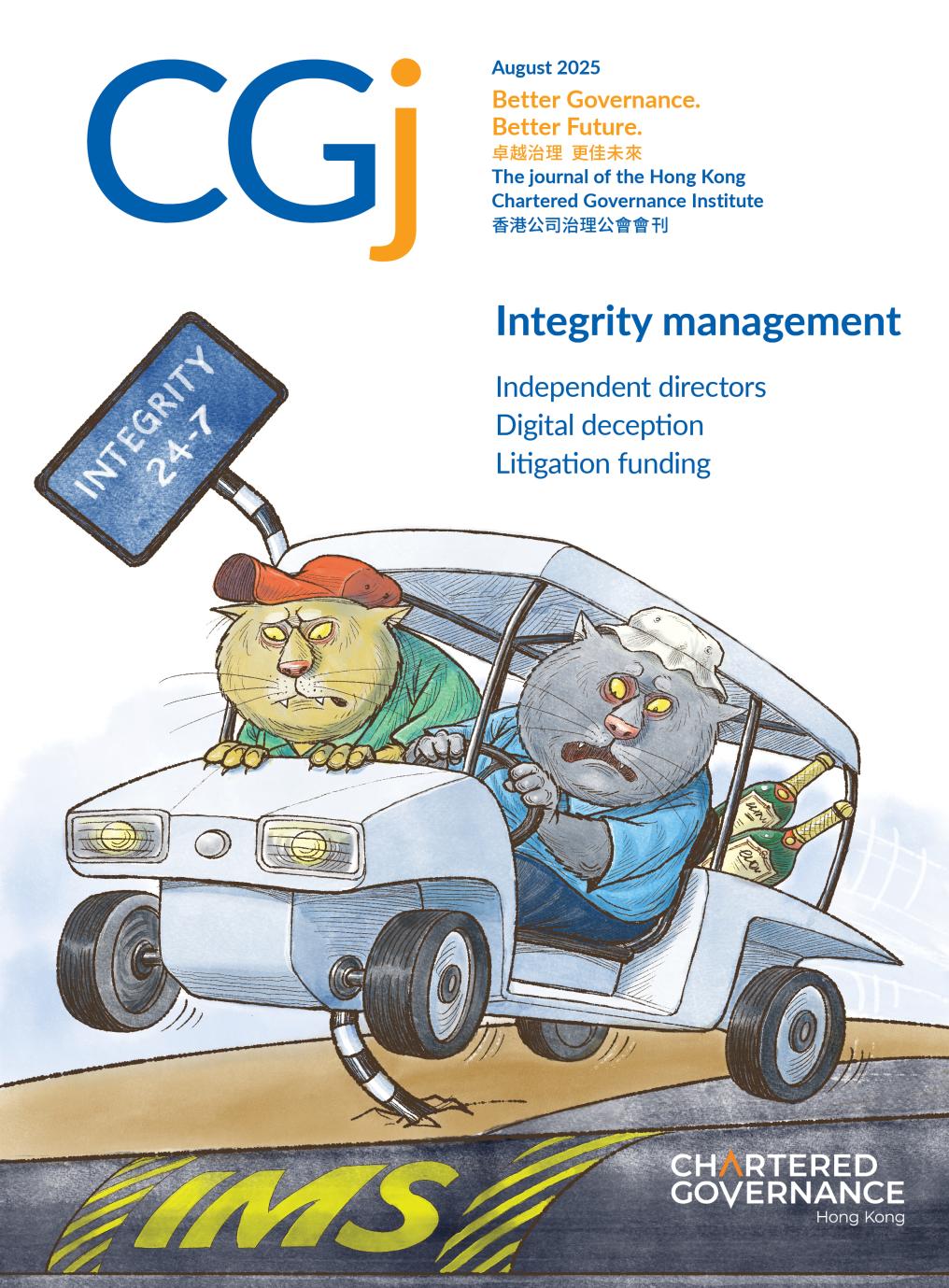
Integrity management
The term ‘integrity management’ has been getting a lot of attention recently among governance stakeholders and you might be wondering whether this is another case of old wine in new bottles. Haven’t we as governance professionals always been managing integrity issues albeit under a different rubric? Establishing and maintaining internal controls for the proper handling of conflicts of interest; ensuring that our organisation has a well-defined code of conduct; and monitoring and investigating potential ethical breaches – these are par for the course for anyone engaged in governance work.
The new focus on integrity management, however, is not just about new terminology. Integrity management has evolved and gained prominence in recent years as organisations, both locally and globally, seek to address complex ethical challenges in a more structured way.
Our cover story this month takes a very practical approach to this topic. Business ethics is sometimes seen as a nebulous concept – more a matter of philosophy than actual business practices, but nothing could be further from the truth. In the course of our working lives very real ethical dilemmas are never far away. Conflicts of interest are an obvious example, but ethical issues impact decisions at every level of an organisation and an effective integrity management system (IMS) can raise our game in addressing this challenge.
One of the key strengths of an IMS is that it encourages a proactive approach to preventing ethical breaches before they occur, through education and culture-building initiatives. This is an important asset where organisations rely heavily on reactive measures, such as disciplinary actions.
Another important feature of an IMS, and one highly relevant to members of our profession, is the strong focus on board-level involvement. The board of directors plays a crucial role in setting the tone from the top and ensuring that ethical considerations are part of strategic and risk management goals. Governance professionals also play a central role here in our board support work. This includes ensuring that directors are well briefed on issues relevant to integrity management at induction and as part of their ongoing director training.
To conclude, good business ethics has long been recognised as foundational to good governance, so integrity management is not a new practice area for members of our profession. Nevertheless, the new focus on this particular area is not about PR – it represents an attempt to build more robust frameworks for promoting integrity and requires a more systematic approach to embedding integrity into organisational culture, policies and operations.
We live in an era of intensified stakeholder expectations regarding the ethical standards of organisations and, in this context, our Institute is proud to be playing a part in ensuring wider awareness of the benefits of an IMS. We are exploring the possibility of working with the Independent Commission Against Corruption on a new initiative to promote better integrity management and training in Hong Kong. Watch this space!


